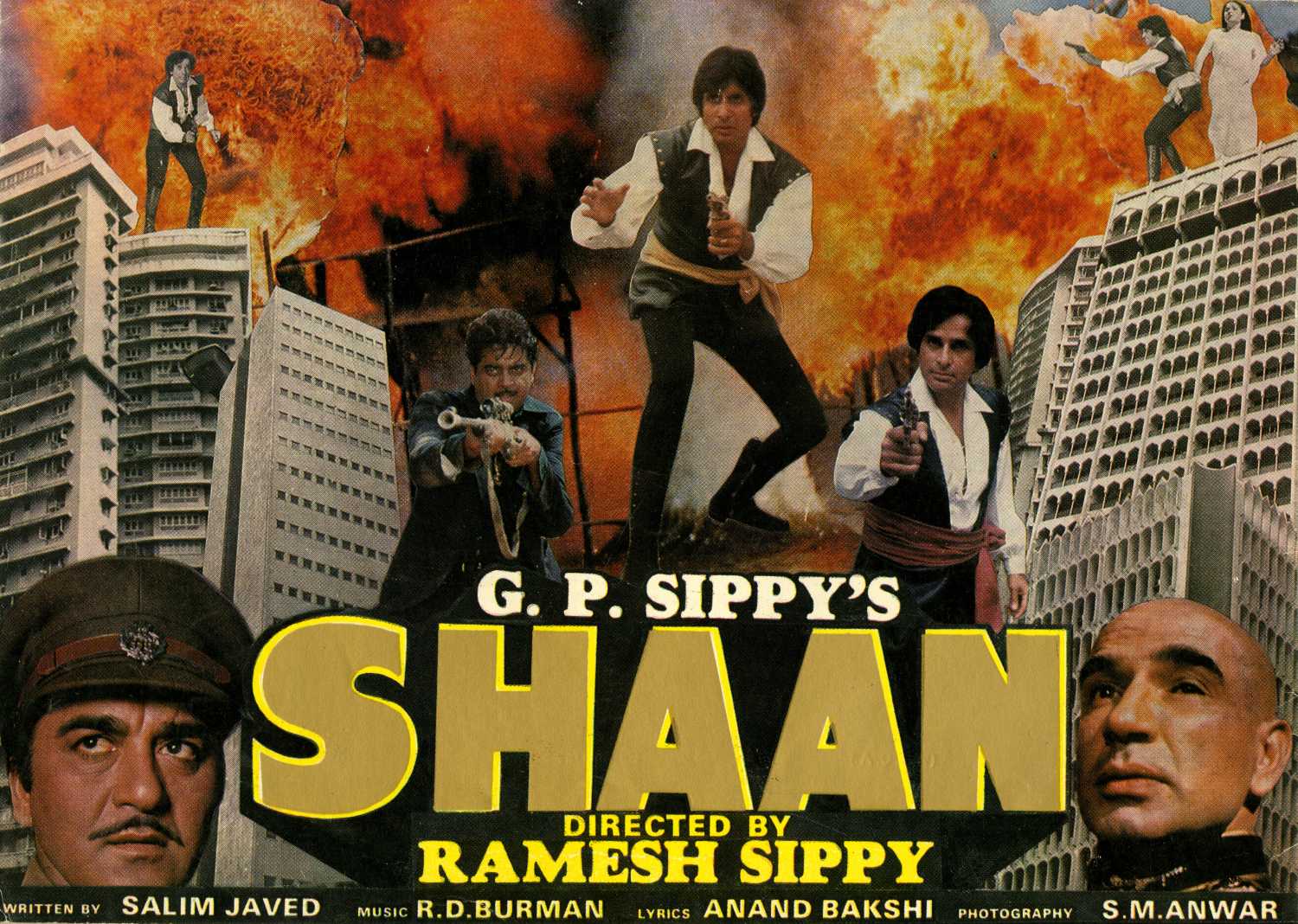Forty years after its release, a look at the multi-starrer extravaganza that did not set the box office on fire like its predecessor Sholay.
Shaan (1980), Ramesh Sippy’s spectacle that failed to impress but endures in popular memory
New Delhi - 12 Dec 2020 17:47 IST


Sukhpreet Kahlon
It is well known that when a film becomes a blockbuster hit, a spate of projects follow in its wake with similar themes to try and cash in on the audience interest. The case of Sholay (1975) and Shaan (1980) is much the same. The two films by Ramesh Sippy and writer duo Salim-Javed follow a similar storyline, but the latter lacks the panache, character nuance and rootedness of its predecessor.
Shaan oscillates between trying to create the sexiness of the James Bond films and satisfying the audience by throwing in a flurry of ingredients at it. The result is a slushy film without a soul, one that seems to be trying too hard.
The multi-starrer featured Sunil Dutt, Amitabh Bachchan, Shashi Kapoor, Shatrughan Sinha, Parveen Babi, Rakhee, Kulbhushan Kharbanda, Johnny Walker and newcomer Bindiya Goswami. Shakaal (Kharbanda) is a criminal mastermind who lives on an isolated island. A regular day in his life involves feeding people to hungry sharks.
Shiv Kumar (Dutt) is an honest police officer who has been foiling Shakaal’s activities, making a nuisance of himself. Shiv Kumar’s brothers are Vijay (Bachchan) and Ravi (Kapoor) who are up to no good, but when their brother is killed by Shakaal, the two are determined to exact revenge.
Along the way, they meet another person (Sinha) who has been wronged by Shakaal. Together the triumvirate sets out to defeat the forces of evil.
The film has the right ingredients, but they do not come together well in the bloated script. There are perplexing shifts in mood, especially with the song 'Jaanu Meri Jaan', which, while a great song by itself, comes at a strange moment in the story and shifts the serious mood completely. By and large, the women in the film do not have much to do except to appear at the right (or wrong) moments, look glamorous and dance.
Right from the opening credits, we see the looming shadow of the Bond films on the action thriller extravaganza. Inspired by the Bond villain Ernst Blofeld, Shakaal was the predecessor to another great Hindi screen villain, Mogambo (Amrish Puri) in Mr. India (1987), a film that was also written by Salim-Javed. Every appearance of Shakaal is a sadistic performance, designed to make his victims squirm, but his villainy, aided by gizmos and gadgets, does not quite match up to that of either Gabbar Singh or Mogambo.
Despite all its faults, however, Shaan remains firmly etched in the popular imagination. SM Anwar won the Filmfare award for Best Cinematographer and, technically, the film is quite ahead of its time. With lavish sets, beautiful locales, well-executed action sequences, stunning cinematography and memorable songs, it brought something that audiences had not seen before. The car chases, sweeping shots of the landscape, even the dog chase sequence and the shark tank scene have become quintessential moments associated with the film.
Though Shaan is generally thought to have been a failure, it did not fare all that poorly at the box office. It, however, fell miserably short when compared with Sholay. In Written by Salim-Javed: The Story of Hindi Cinema’s Greatest Screenwriters, Diptakirti Chaudhuri quotes Sippy as saying, “At a cost of Rs6 crore, Shaan doing business worth Rs12 crore is nothing when Sholay, a film costing Rs3 crore, does something like Rs 25 crore in its first run.”
However, Shaan was not the only big-budget film to have underperformed around the time. In So Many Cinemas, film historian BD Garga observes, 'An industry that had always believed that big is beautiful continued to place its bets on multi-million, multi-star extravaganzas. However, this rationale proved somewhat doubtful as costly productions like BR Chopra’s The Burning Train (1980), Ramesh Sippy’s Shaan (1980) and Kamal Amrohi’s Razia Sultan (1982) crashed at the box office.'
The damp reception to Shaan was countered by Sippy’s film that followed, Shakti (1982), starring Dilip Kumar and Amitabh Bachchan in their only film together.










